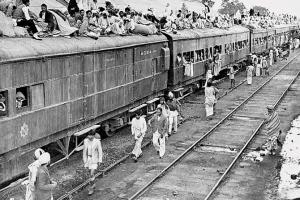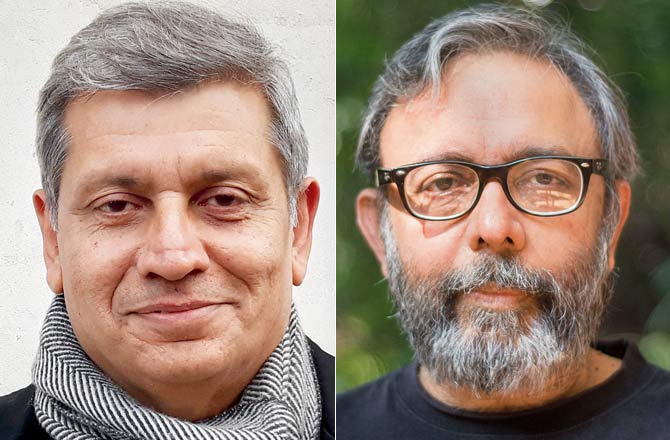A new book studies the emotional trauma of Partition and the silence of the medical profession surronding it

A refugee special train at Ambala Station during the partition of India
The division of south Asia into separate nation states on the eve of Independence was a partitioning of minds, as much as that of divided geography" write Prof Sanjeev Jain and Dr Alok Sarin in their edited book, The Psychological Impact of the Partition of India (Sage Publishing).
ADVERTISEMENT
The book is the result of a surprising revelation they came across when they applied for a grant to study the psychiatric and medical history of Partition, under a project on the history of psychiatry they had been working on for almost a decade. "We couldn't find any first-person accounts of the psychiatric distress [caused by Partition] in medical literature.

Prof Sanjeev Jain and Dr Alok Sarin
There are other books and archives on Partition, but what doctors make of it was not apparent in any textbook or journal," says Jain, professor of psychiatry, National Institute of Mental Health and Neurosciences, Bengaluru. Professor Jain and Dr Sarin, practising clinical psychiatrist at Delhi's Sitaram Bhartia Institute of Science and Research, will be in Mumbai for the first formal release of the book, presented by Literature Live! The release will be followed by a discussion with the authors. The authors will also interact with students of Wilson College during their Mumbai visit.
One of the simplest explanations for this silence is that the total number of psychiatrists in the entire country at the time of Independence was less than 50, explains Professor Jain. On a deeper level, though, he points out, "Nobody had thought of developing a [stream of] psychology at that point of time, which answered the social and psychological realities of the patients or the citizens of India themselves."
He also refers to Manto's poignant Partition story, Toba Tek Singh, where inmates of mental asylums were divided along religious lines. And there are historical documents to prove that this division actually happened. "That was frightening for us, because if I am going to worry about the religion of my patient, how can I work as a doctor in the 21st century?" he asks. Professor Jain draws attention to the fact that in the aftermath of The Holocaust, doctors took the onus of huge-scale reforms in psychiatry, medical ethics and practice. Such partitioning of minds follows a pattern, which repeated itself in erstwhile Yugoslavia and Congo, respectively, he says. "Until we understand it, the splitting of the world into small fragments will continue."
On September 27, 6.30 pm
Free
At G5A Foundation for Contemporary Culture, Mahalaxmi
RSVP [email protected]
Catch up on all the latest Mumbai news, crime news, current affairs, and also a complete guide on Mumbai from food to things to do and events across the city here. Also download the new mid-day Android and iOS apps to get latest updates
 Subscribe today by clicking the link and stay updated with the latest news!" Click here!
Subscribe today by clicking the link and stay updated with the latest news!" Click here!






